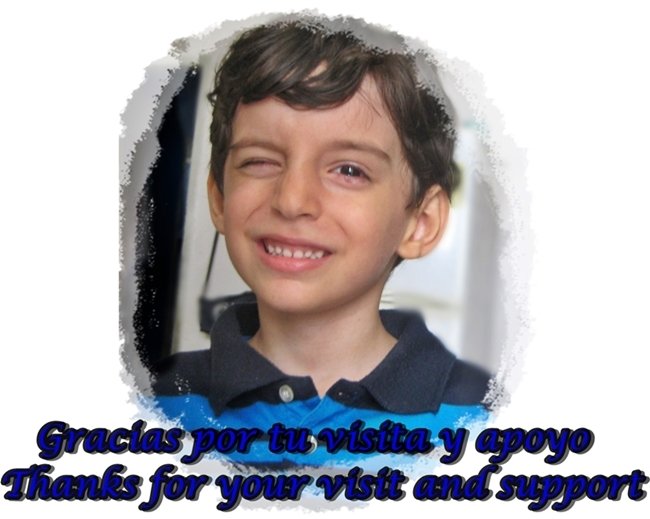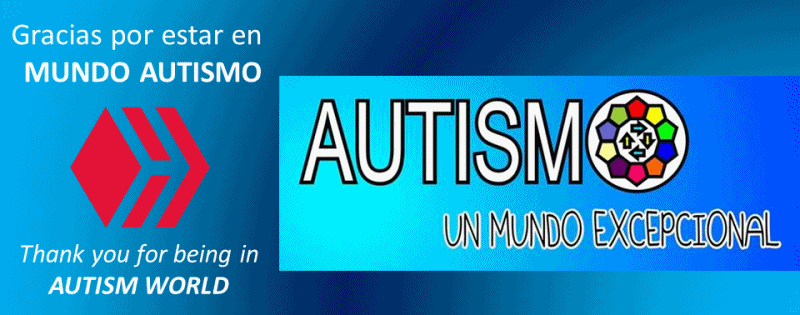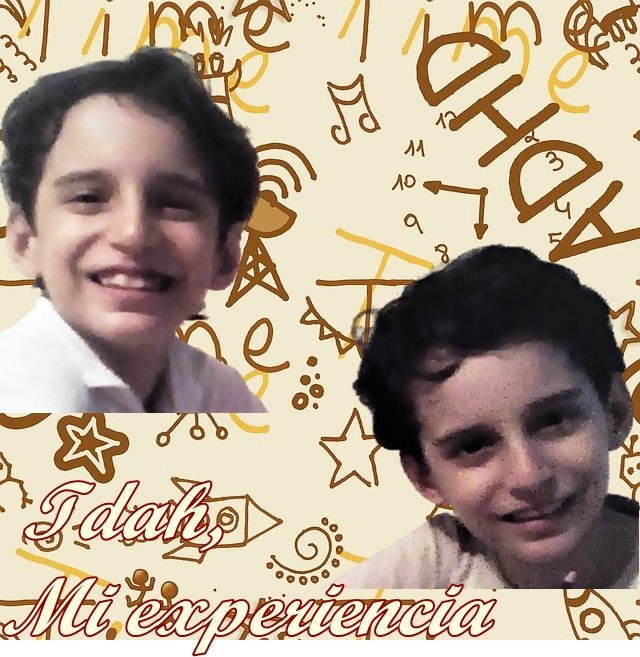
Hola queridos amigos Especiales!
Hoy quiero compartir con ustedes algo de mi experiencia en lo que fue el descubrimiento y diagnóstico del TDAH en mis gemelos.
Algo importante que aprendí es que, como madre y cuidadora, siempre debo estar atenta a las actitudes o posibles cambios en mis hijos, aún y cuando ya hayan habían sido diagnosticados con Autismo.
Como ya he contado en otras ocasiones, mis gemelos fueron diagnosticados un poco antes de los tres años y a partir de allí comenzamos a hacerle su seguimiento con los diferentes especialistas (mientras pudimos). En la medida que pasaba el tiempo comencé a notar que había algo que estaba más allá de los rasgos que regularmente se destacan en el autismo y empecé entonces a observarlos mejor.
Mis hijos nunca tuvieron problemas para socializar ni tampoco para reconocer las emociones en los otros (dos de los rasgos más resaltantes dentro del espectro) pero si mostraban el aleteo y el caminar en puntillas, la desconcentración, entre otros.
Hello dear Special Friends!
Today I want to share with you some of my experience in the discovery and diagnosis of ADHD in my twins.
Something important I learned is that, as a mother and caregiver, I must always be aware of the attitudes or possible changes in my children, even when they have already been diagnosed with Autism.
As I have already mentioned in other occasions, my twins were diagnosed a little before they were three years old and from then on we started to follow them up with different specialists (as long as we could). As time went by, I began to notice that there was something beyond the traits that regularly stand out in autism and I began to observe them better.
My children never had problems socializing or recognizing emotions in others (two of the most prominent traits on the spectrum) but they did show fluttering and tiptoeing, lack of concentration, among others.
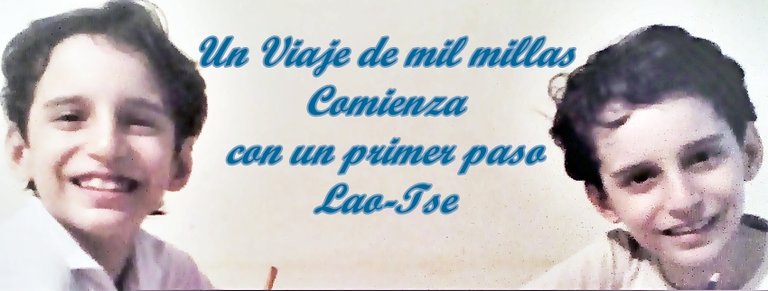 "A journey of a thousand miles begins with a first step". Lao-Tse
"A journey of a thousand miles begins with a first step". Lao-Tse
Cuando tenían 8 años, nos fuimos con el diagnóstico de autismo (leve y moderado) respectivamente con la doctora quien me ayudó a sacar la duda que traía conmigo desde hace algún rato. Ella, con toda la paciencia que conlleva su profesión, compartió con ellos 2 horas con todos sus minutos realizando pruebas y ejercicios en los que llegó a la misma conclusión a la que yo, por instinto, ya tenía. Ambos, en la misma escala del autismo, tienen Tdah; es decir, Isaac quien tiene autismo leve su grado de tdah es bajo y en Moisés, quien tiene autismo moderado, el tdah es más marcado.
Pero ustedes se preguntarán, ¿cómo llegó Esther a esa conclusión antes de llevarlos a la doctora? No lo tenía del todo claro y mucho menos podía haber sacado una conclusión, porque no soy la indicada para tener una, por lo menos formalmente, pero mis sospechas empezaron con la Observación y quiero hacer hincapié en esto, necesitamos observar a nuestros niños, no es correcto y muchos menos bueno para nuestros niños que "los dejemos en su mundo" y no prestarle atención porque "él/ella es así"
When they were 8 years old, we went with the diagnosis of autism (mild and moderate) respectively with the doctor who helped me to remove the doubt that I had been carrying with me for some time. She, with all the patience that comes with her profession, shared with them 2 hours with all her minutes performing tests and exercises in which she came to the same conclusion that I, by instinct, already had. Both of them, on the same autism scale, have ADHD; that is to say, Isaac, who has mild autism, has a low degree of ADHD and in Moses, who has moderate autism, the ADHD is more marked.
But you may ask, how did Esther come to this conclusion before taking them to the doctor? I was not entirely clear and much less could I have drawn a conclusion, because I am not the right one to have one, at least formally, but my suspicions started with the observation and I want to emphasize this, we need to observe our children, it is not right and much less good for our children that we "leave them in their world" and not pay attention to them because "he/she is like that".
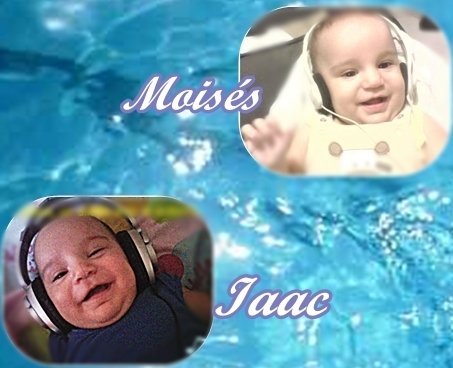
Las características del autismo y el tdah tienden a parecerse, sobre todo cuando es la primera vez que te encuentras con ellos mostrando mayor similitud en la parte sensitiva. Alteración del gusto y el olfato (o huelen con mucha intensidad o no huelen nada; tienden a meterse todo a la boca) cual bebés utilizan muchas veces el gusto como una manera de conectarse con lo que sucede a su alrededor.
Unas de las características que presentan mis hijos en la parte visual, por ejemplo, es que se acercan mucho los objetos a los ojos, sobre todo si es algún juguete u objeto en el tienen especial interés. En lo táctil, sienten mucha incomodidad al cepillarse o al cortarle las uñas. Afortunadamente han ido superando poco a poco su malestar al cortarles el cabello. (Yo soy su peluquera 💙). En cuanto al lenguaje, presentan un atraso considerable, aunque afortunadamente hemos estado trabajado duro y también hemos tenido grandes avances ✔
A lo antes mencionado le añadimos un incremento en su actividad, (hiperactividad), en al caso de mis hijos, caminan mucho durante el día. Les cuesta enfocarse, pero cuando tienen su atención puesta en algo, es difícil sacarlos de allí.
"Nunca será fácil pero tampoco será menos satisfactorio. Cada logro amerita la celebración de una victoria"
The characteristics of autism and ADHD tend to resemble each other, especially when it is the first time you encounter them, showing greater similarity in the sensory part. Alteration of taste and smell (they either smell very intensely or not at all; they tend to put everything in their mouths) babies often use taste as a way to connect with what is happening around them.
One of the characteristics that my children present in the visual part, for example, is that they bring objects very close to their eyes, especially if it is a toy or object in which they have special interest. On the tactile side, they feel a lot of discomfort when brushing or cutting their nails. Fortunately they have been gradually overcoming their discomfort when cutting their hair (I am their hairdresser ᕙ(`▿´)ᕗ). In terms of language, they present a considerable delay, although fortunately we have been working hard and we have also had great advances ✔.
To the aforementioned we add an increase in their activity, (hyperactivity), in the case of my children, they walk a lot during the day. It's hard for them to focus, but when they have their attention on something, it's hard to get them out of it.
"It will never be easy, but it will never be less satisfying. Every accomplishment merits the celebration of a victory."
